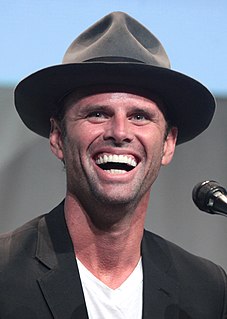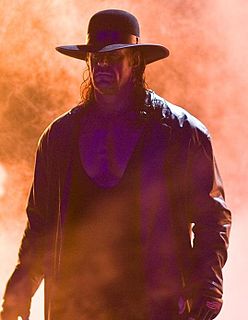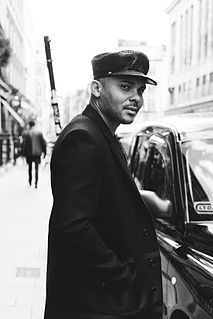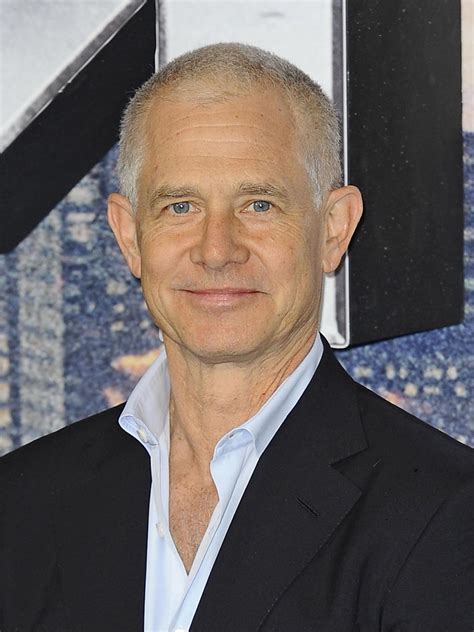A Quote by Walton Goggins
I hate to use this as a metaphor, but making movies is kind of like going to war. It's not - but the stamina required and what it takes to tell a story that is this big in scope, you need a general that will bring out the best in you.
Related Quotes
I'm not going to tell people how to write, but we do have a skill set, and the more we put ourselves out into the world as poets, as a sort of poet of the tribe, as representatives of metaphor, and try to claim space for metaphor in the inner life, that's going to be important and be helpful to poetry and bring a tension for poets writing about whatever they choose.
We like to be the people who go - can go out into the world and say we're the people seeking places that need bridges built and need the kind of energy that we bring, and then actively doing the show. We will pay for it ourselves. We just want to bring the kind of enjoyment that we know we can bring.
I don't ask my students to have studied film or any education in general. What I ask them is to come and sit and tell me a story, and the way they choose it and tell it, for me, the best criteria for whether they are right for making films. There's nothing more important than being able to tell your story orally.
I think the key for us is really letting the stories we feel are best told to kind of dictate where we go. When we find a story we really believe is one that should be told, how do we best tell it and you know what do we need to tell that story most effectively? I think to the good, the universe is such that there are a lot of options, there a lot of opportunities. So that's kind of what's guiding us.
I am very excited to work with people who have a strong vision of what they want. They're trying to tell a story, and they want to use me. I'm there to facilitate that. I really like that. I'm like, "Tell me where your frame is. Tell me what you want, what kind of story you want, and I will facilitate it." That's sort of my job, and it makes my work better when I'm working in that kind of a frame, and hopefully it's their work. It's incredibly collaborative, in the sense that you're working toward a common goal.
The facts of nature are what they are, but we can only view them through the spectacles of our mind. Our mind works largely by metaphor and comparison, not always (or often) by relentless logic. When we are caught in conceptual traps, the best exit is often a change in metaphor not because the new guideline will be truer to nature (for neither the old nor the new metaphor lies "out there" in the woods), but because we need a shift to more fruitful perspectives, and metaphor is often the best agent of conceptual transition.
Doesn't miss many meals, does he?" Zeus muttered. "Tyson, for your bravery in the war, and for leading the Cyclopes, you are appointed a general I. The armies of Olympus. You shall henceforth lead you breathren into war whenever required by the gods. And you shall have a new...um...what kind of weapon would you like? A sword? An axe?" "Stick!" Tyson said, showing his broken club. "Very well," Zeus said. "We will grant you a new, er, stick. The best stick that may be found." "Hooray!
If you gauge how you're doing on whether somebody is responding vocally or not, you're up a creek. You can't do that; you kind of have to be inside of your work and play the scene. And tell the story every day. Tell the story. Tell the story. Regardless of how people are responding, I'm going to tell the story.
I still feel like I don't know what I'm doing. Like, I'm unsure of what my life will be like. I mean, I have such an obsession with making movies that I probably will always do that. But sometimes my life can feel so suffocating, and then it can feel so massive, like I don't have a handle on it at all, and I don't know where it's going or what I'm going to do. Right now, I'm known for making movies. And I wonder if that's it. I don't know. It doesn't feel like it to me.
So many of the models of courage we've had, ones that are still taught to boys and girls, are about going out to slay the dragon, to kill. It's a courage that's born out of fear, anger, and hate. But there's this other kind of courage. It's the courage to risk your life, not in war, not in battle, not out of fear ... but out of love and a sense of injustice that has to be challenged. It takes far more courage to challenge unjust authority without violence than it takes to kill all the monsters in all the stories told to children about the meaning of bravery.
I test the movies a lot, and if the audience says they love the movie, we know we're on the right track. And if they tell me they hate it, I try to figure out what I've done wrong. But every time out, the audience wants me to go deeper, they want to know more about the characters, and they don't want these movies to be shallow. So they really urge me to tell them a complicated story, and then when I do so, they're thrilled




































